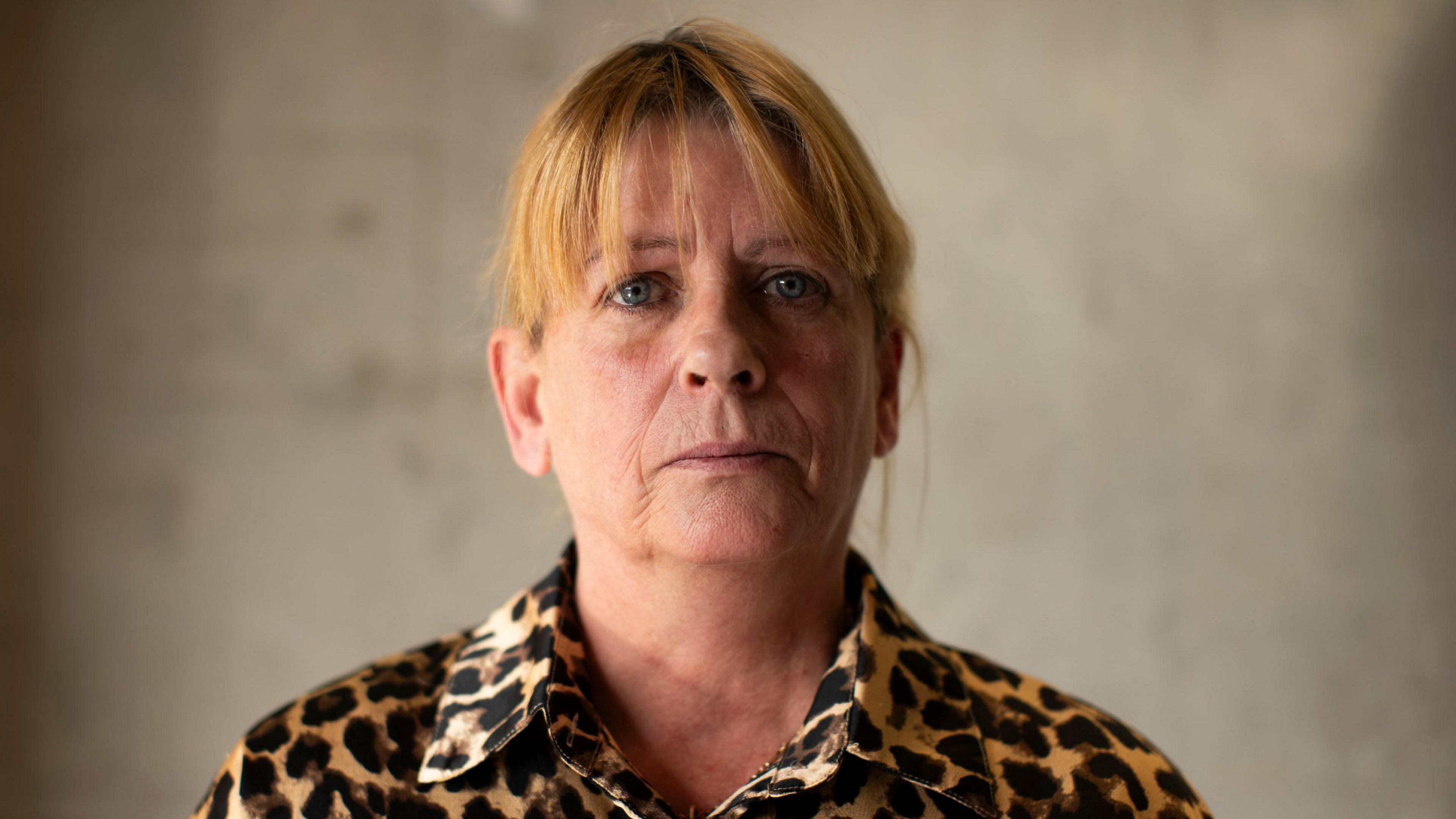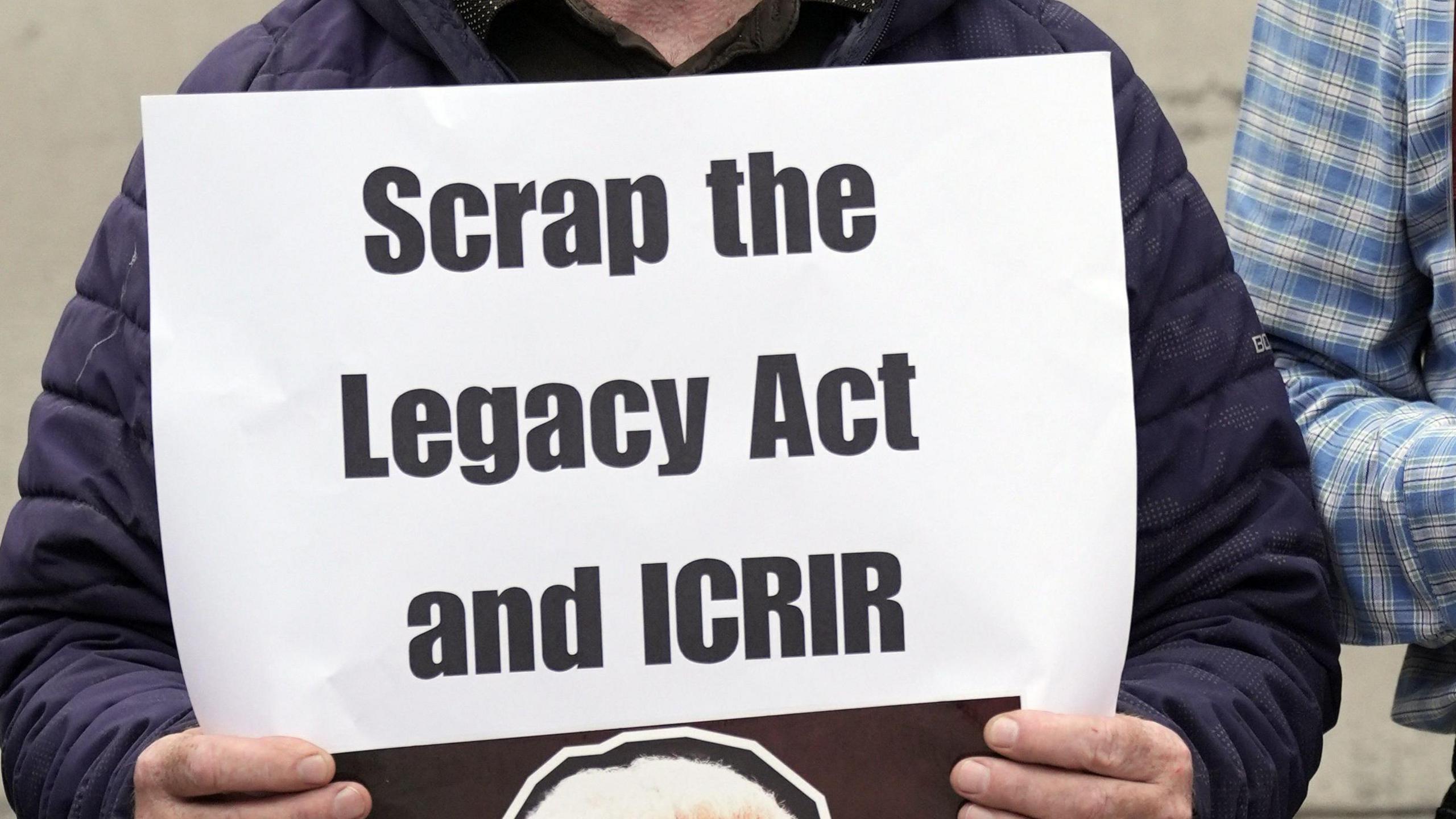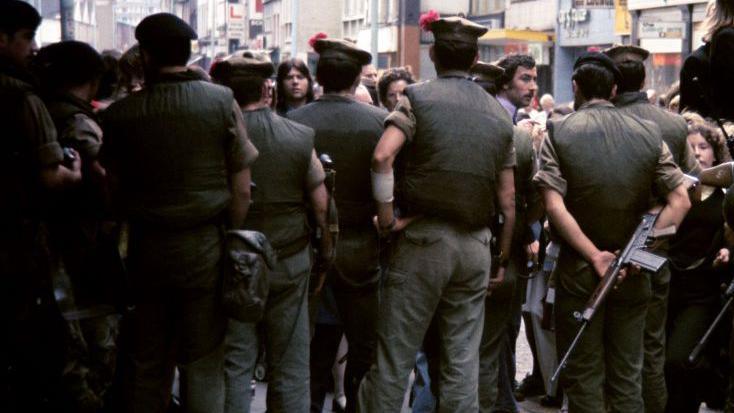NI secretary accused of turning his back on victims

Martina Dillon, whose husband Seamus was killed in 1997, criticised the government's decision to appeal
- Published
The Northern Ireland secretary has "turned his back" on families of Troubles victims, bereaved families have said.
The comments come after it emerged on Friday that the government plans to challenge a Court of Appeal ruling on the Legacy Act.
The Legacy Act, which is opposed by Northern Ireland's political parties and victims' groups, was brought in by the last government and came into effect in May.
Labour has pledged to replace the act, but said it intends on keeping the new legacy body, the Independent Commission for Reconciliation and Information Recovery (ICRIR). The party is currently consulting on the issue.
Last month, judges in Belfast found the act was in breach of human rights law and the Windsor Framework - the Brexit deal which sets trading rules between Great Britain and Northern Ireland.
But on Friday, the Northern Ireland Office (NIO) confirmed it had lodged an application seeking leave to appeal.
'Making fools of us'
Speaking at a press conference in Belfast on Monday, Martina Dillon, whose husband Seamus was shot dead in a loyalist attack in Dungannon in 1997, said the decision was a "complete shock".
She accused Hilary Benn of "making fools out of us all".
"The secretary of state has gone against us, turned his back on us," she said.
Government to challenge Legacy Act court ruling
- Published18 October 2024
Legacy Act gives government too much power, court rules
- Published20 September 2024
Ms Dillon said bereaved families had won two different cases on the act, but now the Northern Ireland secretary was attempting to appeal those decisions.
"A year ago, the secretary of state stood up and he bad mouthed the last government that we had in and said he was against the Legacy Act and now he's doing exactly the same," Ms Dillon said.

Hilary Benn was appointed to the NI secretary role in July
Ms Dillon said she had been fighting for almost 27 years for answers about her husband's murder.
"I fought tooth and nail - everything I had to face, I faced it to get an inquest for my husband," she said.
"Now to be told that Hilary Benn is appealing against our wins in court, to take this away after all these years of fighting. Have I not suffered enough? Has every other victim not suffered enough?
"We want inquests, nothing more, nothing less."

Amnesty International's Gráinne Teggart said the appeal was a "betrayal"
Gráinne Teggart, from Amnesty International, said the government's decision raises "very significant questions" over its promise to repeal and replace the act.
"The decision marks the continued dilution of a categorical pledge by Labour prior to the election that they would right the wrong of the last government on legacy," she said.
Ms Teggart said the Court of Appeal was "damning" in the ICRIR's deficiencies.
Gavin Booth, from Phoenix Law, said the government's actions were disappointing.
"My understanding is that they are planning to challenge all aspects of the case including the human rights convention grounds and the Windsor Framework grounds," he said.
Judgment 'complex and wide-ranging'
On Friday, the NIO said it fully intended to repeal and replace the act.
"It is absolutely clear that changes to the act are necessary to ensure it is human rights compliant," a spokesperson said.
"That is why the government has already committed to bringing forward a remedial order under the Human Rights Act, and to reforming the ICRIR."

More than 3,500 people lost their lives during the 30-year conflict in Northern Ireland
It said the Court of Appeal's judgment was "complex and wide-ranging".
"We require further time to consider fully its implications and next steps, and intend to bring clarity and certainty as soon as possible," it added.
"In the meantime, the government has lodged an application with the Court of Appeal seeking leave to appeal the judgment."
What is the Northern Ireland Troubles (Legacy and Reconciliation) Act?
The act was passed by the Conservative government in September 2023 despite opposition from Labour, all Northern Ireland parties, several victims' groups and the Irish government.
It created a new legacy body known as the ICRIR to take over all Troubles-era cases from 1 May 2024, including those on the desk of the Police Service of Northern Ireland.
The act shuts down all historical inquests.
Its most controversial element, the offer of conditional immunity to suspects, has been disapplied following legal action by bereaved families.
The court ruled this part of the act was incompatible with human rights legislation and the Windsor Framework.
In late July, the Labour government wrote to the Belfast courts abandoning an appeal against the striking out of the amnesty clause in the legislation.
Related topics
- Published18 October 2024

- Published20 September 2024

- Published29 August 2024
